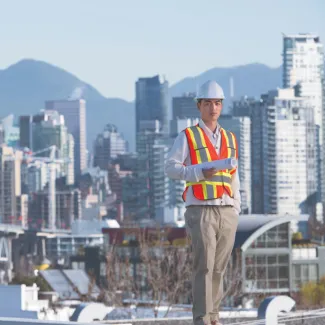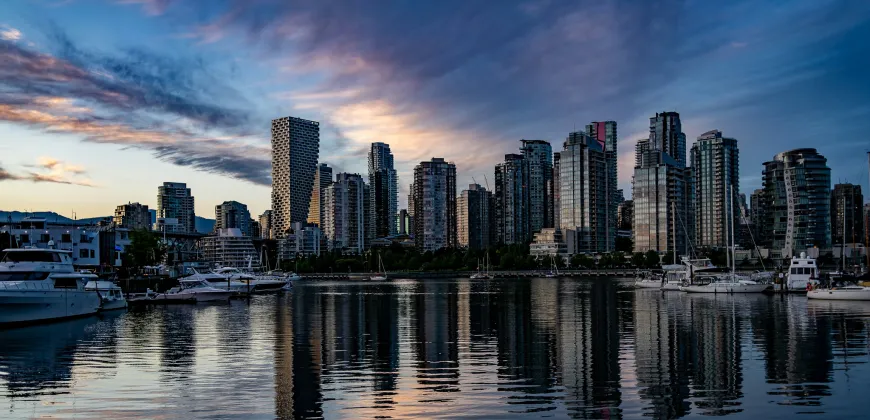Spotlight Program Series with Dr. Susan Nesbit

Systems-thinking professionals needed to address urban system challenges
By Susan Nesbit, former Co-Director of UBC’s Master of Engineering Leadership in Urban Systems
A new kind of professional is needed to address the evolving infrastructure challenges faced by our cities. We need people with specific technical expertise who understand the complex interdependencies of urban infrastructure systems and the built environment. We require professionals who can consider these issues from social, ecological, economic and technical perspectives, and who are comfortable working with specialists in a range of fields – from storm water management and energy distribution to social housing and transportation planning. Our colleagues in industry tell us that finding that much-needed skill set can be difficult. That’s why the University of British Columbia worked with an industry advisory group to create the Master of Engineering Leadership (MEL) in Urban Systems – an innovative professional graduate degree program that will welcome its fourth cohort of students in January 2019.
This one-year master’s degree aims to address the infrastructure sector’s need for systems thinkers who possess engineering experience and an understanding of social issues and planning processes, along with business and leadership skills. The transdisciplinary program is a collaboration of UBC’s Faculty of Applied Science – in particular the Department of Civil Engineering and the School of Community and Regional Planning – and UBC Sauder’s Robert H. Lee Graduate School. With cross-disciplinary perspectives embedded into the learning environment, the MEL in Urban Systems builds students’ skills and prepares them for the teams they’ll be managing and leading over their career.
The transdisciplinary learning environment is enhanced by the backgrounds of our students: each cohort consists of professionals from around the world who have at least three years of professional experience and who have worked in fields that include civil engineering, construction management, urban planning, architecture and landscape architecture.
The program offers a comprehensive overview of best-practice design, operation and management of urban infrastructure and services. Our students study the social context of city infrastructure (including aspects of policies and policy development). They also learn about infrastructure asset management, infrastructure engineering, infrastructure project delivery, economics and aspects of technical leadership.
Courses in business principles and leadership development are designed to hone our students’ abilities as strategic thinkers and leaders. It’s here that they develop skills in project management, organizational leadership and data analysis, and where they explore adaptive leadership and change-agency systems thinking. Business and technical electives allow students to explore their specific interests.
Every term, student teams work on industry-led projects. These have recently included smart city initiatives in New Westminster, BC; design concepts for a new carbon-neutral community in Edmonton, Alberta; and strategies for using Wi-Fi occupancy data to support UBC’s campus-wide sustainability initiatives. Our graduates tell us that this project work helps them integrate and apply their learning in new and innovative ways, expand their network and build their resume. The unique combination of skills developed by our graduates positions them to become leaders in their fields and successfully manage multi-layered, complex infrastructure projects. They’re the people who are comfortable working through technical issues with experts, and who can also speak the language of business.
As a co-director of the program and someone whose research explores best practices in bringing sustainability education methods into engineering programs, I’m convinced that the MEL in Urban Systems is equipping the next generation of professionals with the skills our cities – and our planet – so urgently need. Our students can hit the ground running – they possess increasingly important skills, like infrastructure asset management, which can be put to use as soon as they graduate. Even more critically, they are well-equipped to work with others to address unwieldy, often value-laden, urban systems challenges.
In teams possessing an array of perspectives, graduates of the MEL in Urban Systems have what it takes to create a resilient and livable future for our cities. Learn more about how the MEL in Urban Systems can help you lead change in your industry, giving you the technical knowledge, foundational business skills and leadership confidence to excel in your career. UBC also offers the MEL in sector-specific programs, including Clean Energy Engineering, Dependable Software Systems, High Performance Buildings, and Naval Architecture and Marine Engineering.






